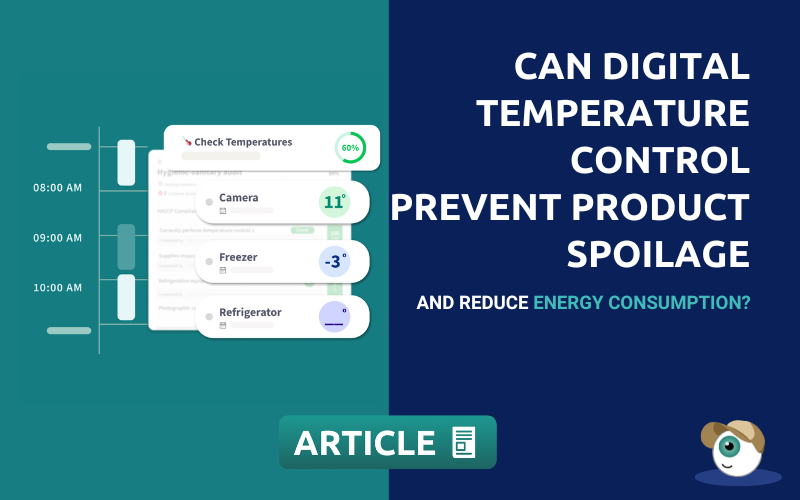Can Digital Temperature Control Prevent Product Spoilage and Reduce Energy Consumption?

Yes — and here’s why digital temperature control is essential for any business handling perishable goods.
Whether you operate a restaurant, supermarket, hotel kitchen, or central production unit, temperature-sensitive products are at constant risk.
Spoilage leads to waste, lost revenue, and safety concerns.
At the same time, outdated or inefficient cooling systems consume unnecessary amounts of energy.
Digital temperature control solves both problems.
It helps you protect your inventory, cut costs, and run more sustainable operations.
Let’s look at how.
Can Digital Temperature Control Prevent Product Spoilage and Reduce Energy Consumption?
1. It prevents spoilage through real-time monitoring
Manual temperature logs are slow and often inaccurate. With digital systems, sensors continuously track temperatures inside cold rooms, display units, or transport containers — 24/7. If something goes wrong (e.g., door left open, equipment failure), you get an instant alert before products are compromised.
Many businesses using digital temperature control report up to 80% fewer spoilage incidents, simply because they catch problems early. For high-risk items like dairy, meat, or prepared meals, this can mean the difference between a safe delivery and a full write-off.
2. It reduces energy waste with smarter operation
Refrigeration equipment often runs inefficiently without anyone noticing. Maybe compressors run longer than needed, or defrost cycles are mistimed. Digital systems detect these patterns and provide data to optimize energy use — without affecting food safety.
Some tools even adjust cooling power based on the time of day or stock levels. This avoids overcooling and can lead to 15–25% energy savings over time, especially across multiple units or large facilities.
3. It simplifies compliance and reduces human error
Staying compliant with food safety regulations (like HACCP) requires regular checks and documentation. Digital systems automate much of this, storing temperature records securely and making audits easier.
More importantly, they remove manual error from the equation. No more forgotten checks or illegible logs. Your team can focus on service and operations, not paperwork.
Bottom line…
Yes, digital temperature control prevents spoilage, reduces energy costs, and simplifies compliance — all at once. It’s a smart move for any operation that depends on reliable cold storage.
Discover how Andy helps food service operators automate monitoring, improve efficiency, and gain full control of their HACCP systems.


